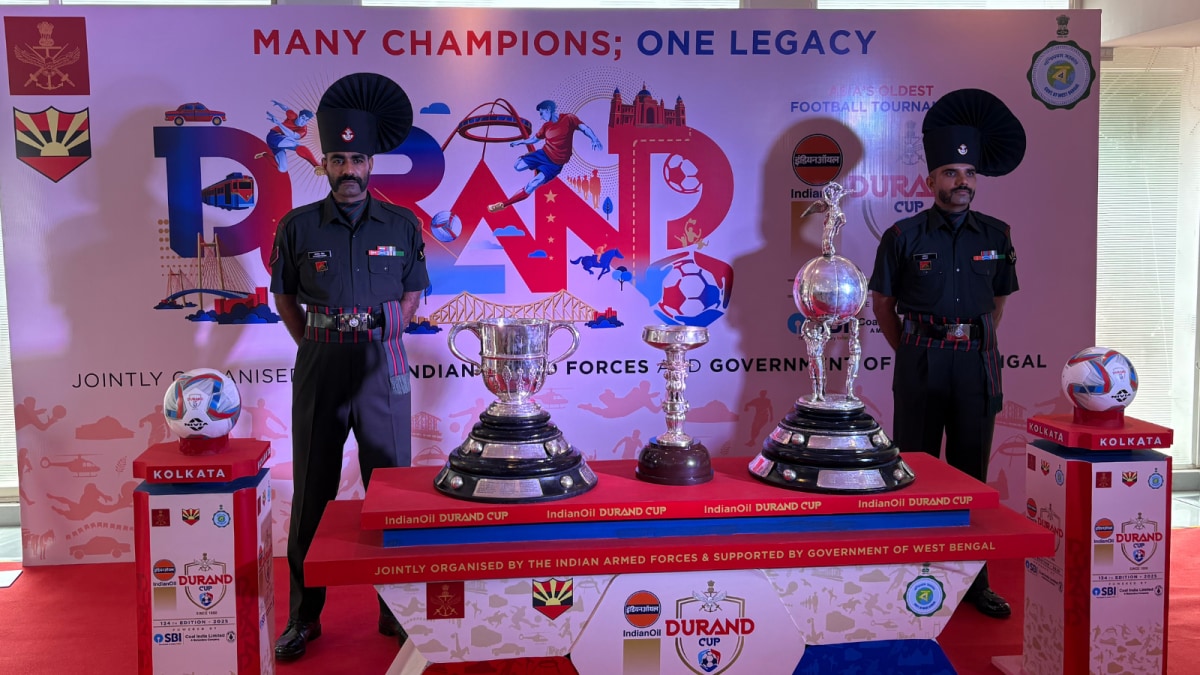ARTICLE AD BOX
The final over on Day 3 at Lord’s was a teaser of the fireworks expected in the last two days of this hard-fought neck-and-neck Test. The exact mid-point of this 5-match Test series could well have been the trailer suggesting the tone and tenor of Shubman Gill’s captaincy and the collective behavior of the team under him.
At the start of the tour, the English media saw Shubman as a ‘laidback’ cricketer who, during his stint at Glamorgan three years back, once forgot the keys of his new Volvo in the car. He was that charmingly forgetful prince and a batting genius. They were fans of his old-school technique and that dimpled smile of his.
Lord’s showed that, in the heat of the moment, he can also bare his fangs and dish out verbals too.
Shubman took over from Rohit Sharma but when England opener Zak Crawley tried to slow down the game so India got to bowl just one over, and not two that the time permitted, he showed that there was a bit of Virat Kohli in him. He started the chorus of sarcastic claps and also gave Crawley a serious tongue-lashing. When Ben Duckett joined the heated exchange, he too wasn’t spared. This was a captain who wanted to be in the thick of things and not shy away from any good old on-field confrontation.
Having cut his teeth in North India’s dog-eat-dog competitive circuit that is not for any lily-livered cricketer, Shubman’s reaction to gamesmanship wasn’t a surprise. In these parts, giving the lip, taking the mickey out of rivals and invective-laden sledging during games isn’t an episode, it’s the norm.
Always annoying when you can't get another over in before close 🙄 pic.twitter.com/3Goknoe2n5
— England Cricket (@englandcricket) July 12, 2025
Though coaches from his junior days vouch for his conduct both on and off the field, Shubman doesn’t just let his bat do the talking. He too can give back what he gets.
England’s bowling legend Jimmy Anderson, on BBC’s Tailenders podcast, had spoken about his chatter with Shubman during last year’s India-England series. This was an incident that unfolded in the 5th Test at Dharamsala, where Shubman scored a hundred and England’s Bazball bluff was called out. This was a bitterly contested game.
“I said something to him like, “Do you get any runs outside India?”, and he said, “It’s time to retire”,’ Anderson recalled. “Two balls later I got him out”.
Story continues below this ad
This didn’t end here, later in the game batsman Jonny Bairstow would continue the same conversation.
Bairstow: ‘What did you say to Jimmy about him retiring?’
Shubman: ‘I told him he should retire.’
Bairstow: ‘And then he got you out next ball?’
Shubman: “So what? How many times has…’
Bairstow: ‘I was just asking.’
Shubman: ‘He can get me out after my 100.’
Bairstow: ‘100 per cent.’
Shubman: ‘How many 100s [do you have] this series?’
Bairstow: ‘How many have you scored, full stop?’
On this England tour, the Indian captain has replied to both Anderson and Bairstow. No one would be asking about his runs abroad anytime soon.
What unfolded at Lord’s has a background to it. Unlike the battles with Australia, the India-England rivalry doesn’t have a recorded history of any major nasty on-field battles blowing up into major diplomatic crises. There has been no fight of Monkeygate scale against England.
Story continues below this ad
But in the Indian dressing room, England gets slotted with Australia when it comes to teams they hate to lose against. There is a reason, as explained by India’s former captain Rohit Sharma, after last year’s loss to New Zealand at home. “It is tough to hate them (New Zealand), be angry at them. Imagine, this was their historic win but the celebrations were so mild. No shouting or sledging, no fuss. They shook hands with us and just moved to their dressing room. Had it been Australia or England …”, he would say.
It is this history, and the consequences of defeat, that keeps players on the edge, makes them push the limits and also the envelope. The captain isn’t alone in this young team to sledge.
Actually, Jos Butler, former England captain and Shubman’s Gujarat Titans teammate wouldn’t have been surprised. He had seen that ‘Virat’ side of the new captain. “He’s pretty calm and measured but … on the field he’s got a bit of fight about him; a bit of intensity, quite passionate. I think he’ll be a mix of Kohli and Rohit. Kohli, that sort of real aggressiveness, really transformed the Indian team, in your face, up for the contest. Rohit is a bit on the other side, a bit more laid back … but with that sort of fight. I feel like, from my time knowing Shubman so far, he’ll be a bit in the middle,” he told Stuart Broad on a podcast.
After the day’s play, KL Rahul was asked if he had ever seen his captain in that mood before. “I have seen him fired up but obviously we wanted to bowl two overs, there were six minutes left. Obviously two overs is a no-brainer… that any team would bowl two overs with six minutes to go. But yeah, it’s a bit of theatrics at the end and we were all pumped up.”
Story continues below this ad
Earlier in this Test, when Root and Ollie Pope had downed the shutter and were scoring at the conventional strike rate, the Indians couldn’t stop themselves from taunting them. “Where is Bazball. Baz, Baz, Bazball. Play Bazball. I want to see,” the stump microphone would catch Mohammed Siraj’s comments. The captain too would join. “”No more entertaining cricket, welcome back to boring Test cricket guys.” During the Australian tour it was Yashasvi Jaiswal who told Michael Starc, when he let one go, that he was bowling “too slow”.
And then there is the Indian coach Gautam Gambhir, not exactly a silent bystander in on-field skirmishes. Be it when he was a player or a coach, Gambhir too has believed in talking and talking back. Those last six minutes at Lord’s gave an idea about the sounds and sights Indian cricket will witness in the years to come in this new regime.



.png)
.png)
.png)
























 English (US) ·
English (US) ·